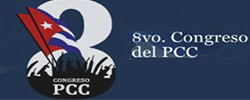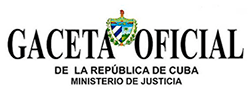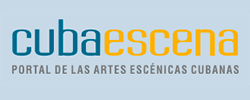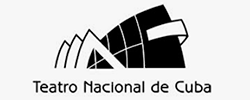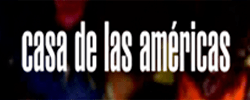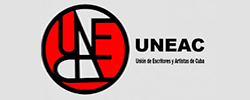In the first part of this document, we propose to formulate certain concepts that we believe are essential to confront the cultural and symbolic war to which we are subjected and to achieve the greatest coherence in the application of the cultural policy of the Revolution by all entities that in one way or another disseminate Cuban and foreign art. At the same time, in its second part, it points out a group of concrete actions that (based on the conceptual basis already referred to) are still being carried out in an incipient manner or that we intend to promote as soon as possible.
It is essential to remember comrade Raúl's message to UNEAC on its 55th anniversary:
Today we are doubly threatened in the field of culture: by the subversive projects that seek to divide us and the global colonizing wave. The UNEAC of today will continue to face these complex challenges with courage, revolutionary commitment and intelligence.
The institutions of the MINCULT system feel equally called upon by these words of our President. They will be able to move forward in this decolonizing task, in defense of Cuba and socialist values, if they are able to articulate their efforts, first of all, with UNEAC itself, and also with the AHS, SNTC, ICRT, MINED, MES, MINTUR, MINCIN, MITRANS, MTSS and other agencies and organizations.
In order to truly implement a single cultural policy in the face of "the subversive projects that seek to divide us and the global wave of colonization", we need artists, writers, teachers, journalists, radio and television producers, cultural promoters, art instructors and institutional leaders. We must strengthen the concerted action of all entities in specific objectives and tasks, which will bring greater intentionality and consistency to cultural work. The real integration of the institutions of the cultural system at all levels will favour a higher quality of cultural programming. Work must be done with all offices and organizations that can help in the work of forming audiences, values and aesthetic taste.
Today our cultural institutions are being attacked by disintegrating forces of many different kinds. Society has become more complex and contradictory, amidst ethical setbacks and marginal behaviour. Inequalities have been accentuated that can limit the participation of the majority in cultural processes, create offers designed for privileged sectors and set back one of the most admirable works of the Cuban Revolution: the democratization of access to culture as a means of emancipating human beings. The rise of new technologies has created an alternative option for access to culture, particularly in the field of music and audiovisuals, which has an enormous influence on us. In public spaces under forms of non-state management and in many areas attached to state enterprises, shows are presented and products disseminated that openly contradict the country's cultural policy.
In certain segments of the population, there are pro-capitalist and neo-anexionist tendencies and a colonized dazzle in the face of hegemonic models. Among people with a certain intellectual preparation, there is a deformed re-reading of the 20th century in Cuba, including the neo-colonial Republic and the revolutionary period. This has been favored by the new conditions created by the growing cultural exchange with the United States.
In spite of these manifestations, our people and in particular the young people have reacted to the painful event of Fidel's death with very deep expressions of grief and commitment. The existence of great moral and revolutionary reserves was very evident.
Keeping Fidel alive, guaranteeing the continuity of the Revolution, fighting against all annexationist and pro-capitalist expressions are fundamental tasks of our cadres and officials, both in the projection of the institutions towards the population and in the dialogue with the creators. An anti-imperialist and anti-colonialist culture must be promoted by all means within our reach. It is essential that the profoundly anti-cultural and inhuman essence of capitalism be understood in all its dimensions. We must refute in practice and in concept the pilgrim theories that art would prosper in our country without the institutions (seeing them as a mere bureaucratic burden).
We must strive every day to reinforce the values of socialism through culture. We must ensure that the people, in their active participation in the cultural processes, perceive satisfactions and ways of realization not linked to the material, and that they identify that well-being with the fact that they live in a socialist society.
We must encourage our creators, cadres, officials and working people to keep informed about the national and international situation. It would be absurd to evade internal problems in the debates that are held; but we must also appreciate, in a comprehensive way, the global crisis that humanity is experiencing at present. The blockade against Cuba remains intact; a reactionary offensive threatens to wipe out the advances of the progressive forces in Latin America; the deterioration of the environment continues unstoppable in the face of the irresponsible negligence of the elites and the unbridled consumerist race; politics has fallen into disrepute, and the fate of the planet is in the hands of powerful transnationals; fascist tendencies, racism, xenophobia, uncontrolled and increasingly cruel and senseless violence and the dramas associated with the emigration of those fleeing wars and hunger are on the rise.




